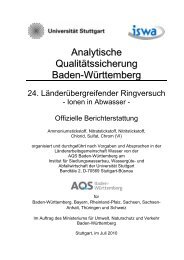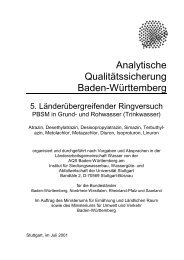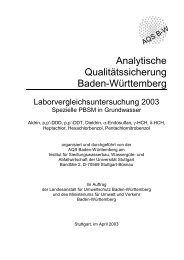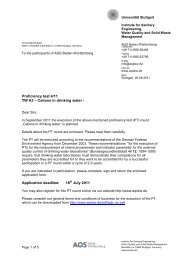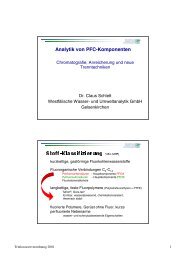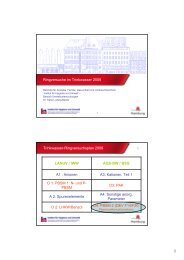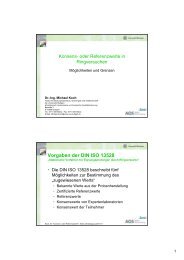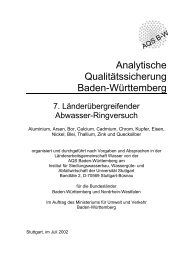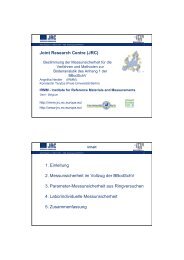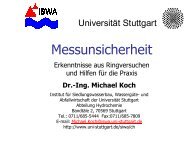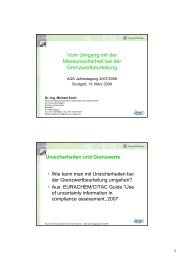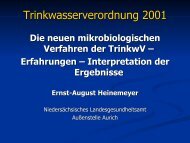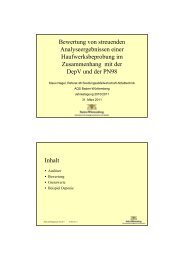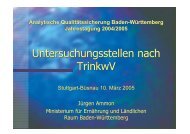Institute for Sanitary Engineering, Water Quality and Solid Waste ...
Institute for Sanitary Engineering, Water Quality and Solid Waste ...
Institute for Sanitary Engineering, Water Quality and Solid Waste ...
You also want an ePaper? Increase the reach of your titles
YUMPU automatically turns print PDFs into web optimized ePapers that Google loves.
Chair of Hydrochemistry <strong>and</strong> Hydrobiology<br />
Hydrochemistry<br />
Research topics:<br />
• Environmental analysis<br />
• Examination of occurence <strong>and</strong><br />
fate as well as risk assessment<br />
of environmentally relevant chemicals<br />
• Biosensors <strong>for</strong> the determination<br />
of inhibition of nitrification<br />
• Biological in-vitro test systems,<br />
<strong>for</strong> the determination of hormonal<br />
activity of environmental<br />
samples, i.e. E-SCREENAssay<br />
<strong>and</strong> YES-Assay<br />
• <strong>Quality</strong> Assurance in Analytical<br />
Chemistry<br />
We have a nose <strong>for</strong> it<br />
In the hydrochemistry department the main subjects dealt with are environmental chemistry <strong>and</strong>, in particular,<br />
environmental analyses.<br />
Some of the research work here deals with the question of the volume of medicines entering domestic wastewater,<br />
how these are degraded in a treatment plant <strong>and</strong> the influence they have on aquatic communities. We are especially<br />
interested in the volume of such chemicals retained in treatment plants, either by degradation processes<br />
in the various purification stages or by enrichment in the sewage sludge. As a consequence, we also investigate<br />
water bodies, above all with the question of whether <strong>and</strong> to what extent chemicals in the water are ingested by<br />
aquatic organisms (e.g. fish), are enriched within their bodies, or degraded or altered by their metabolism. A<br />
whole series of trace analysis methods are available <strong>for</strong> these investigations; these methods were, in part, specially<br />
developed in the hydrochemistry department. We are also engaged in the monitoring of treatment plants<br />
with regard to substances in the water that can interfere with components of the biological purification stages.<br />
A specially developed bio-sensor test system can be implemented <strong>for</strong> this purpose; it is suitable <strong>for</strong> recognition<br />
of nitrification-inhibiting compounds. Moreover, we also deal with external quality assurance in water chemistry<br />
laboratories <strong>and</strong> competence assessments. In the fields of drinking water, wastewater <strong>and</strong> groundwater analysis,<br />
this involves proficiency tests <strong>for</strong> laboratories, which are in part obligatory <strong>for</strong> state recognition of the laboratories.<br />
In addition, further water chemistry problems in the fields mentioned are investigated.<br />
122



